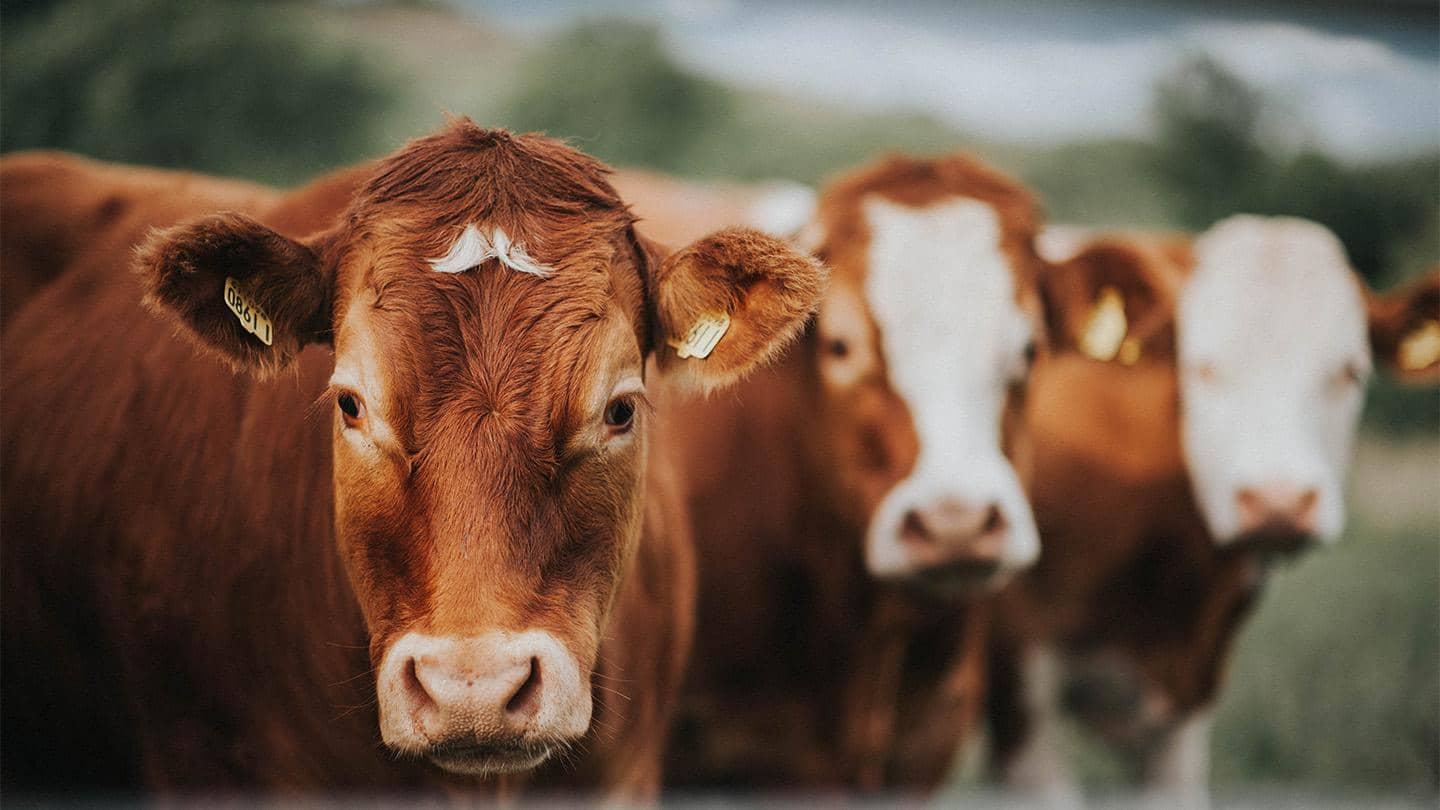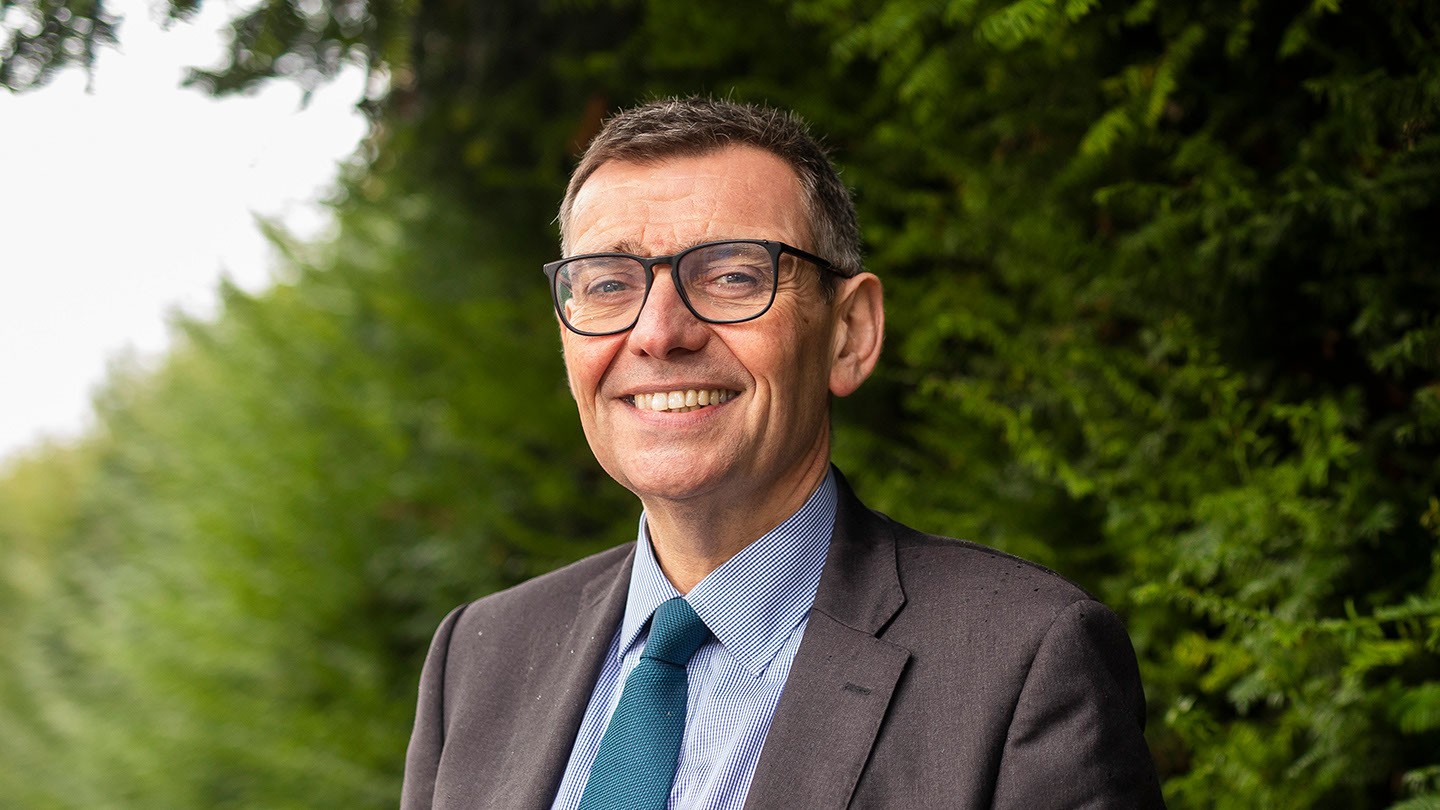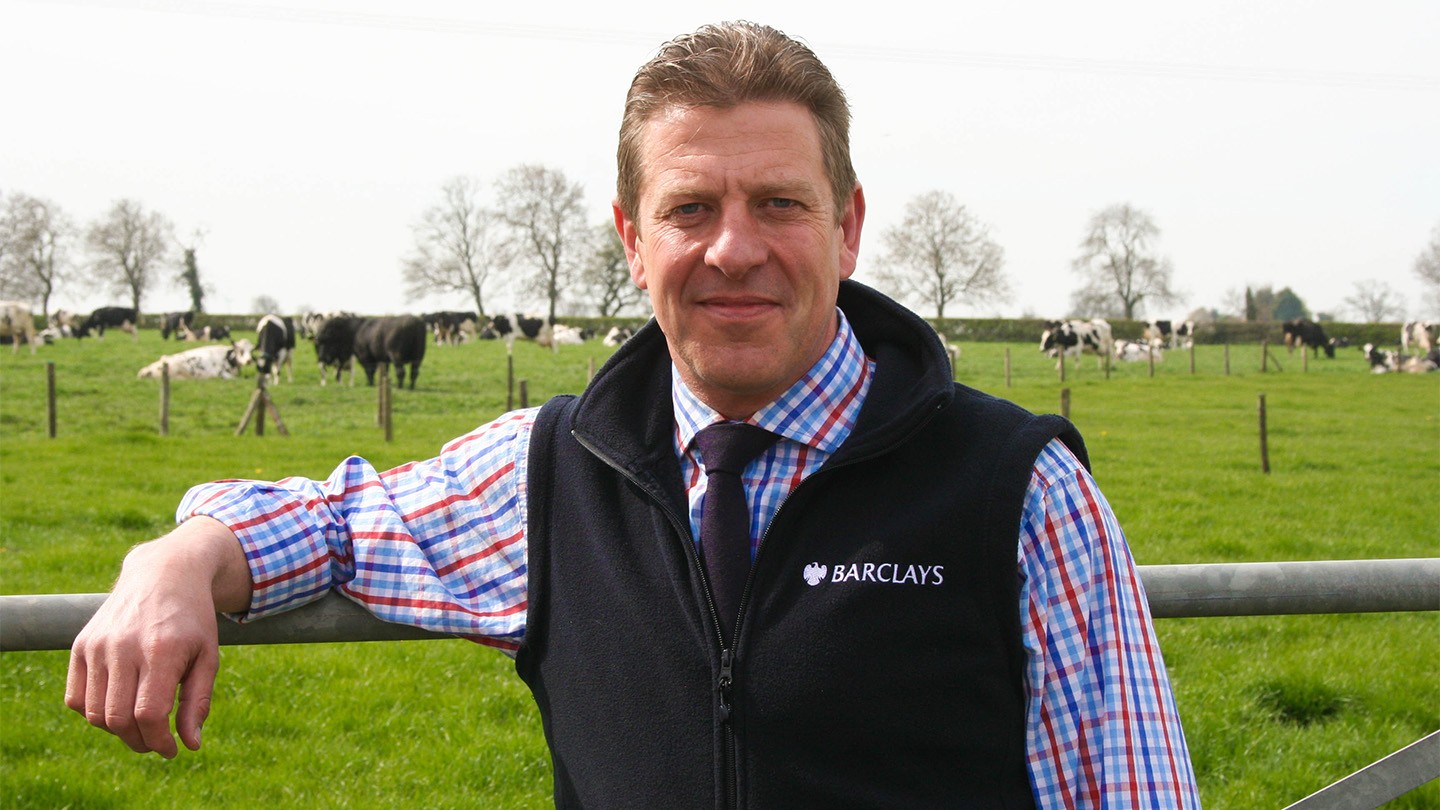
Growth
Backing UK agriculture through Brexit and beyond
UK farmers face a ‘triple wave’ of coronavirus, Brexit and climate change. We hear from Barclays’ Mark Suthern and Oliver McEntyre about why, in anticipation of the end of the UK’s transition period after Brexit, the bank has been helping the UK farming sector embrace technology and move towards sustainability.
Having helped the UK agriculture industry stay resilient through the coronavirus pandemic, the attention of Barclays sector experts Mark Suthern and Oliver McEntyre is turning to the next wave of disruption: Brexit.
“You may have seen a cartoon of two people on the beach, talking, and you see three waves coming in from the sea,” says Suthern. “You've got the first wave, labelled COVID-19, the second wave, which is a little bit bigger, labelled Brexit, but looming next above all of that is the much larger wave of climate change.”
For Suthern, who is Barclays’ National Head of Agriculture, agricultural businesses making changes ahead of the end of the transition period should “look forward five years” to ensure they can best ride that next wave.
As a nation, we have real advantages. We have yield. We have provenance and quality. And we also have intellectual tradition in the agricultural sector
Barclays’ National Head of Agriculture

“I would be thinking how do I invest in harvesting the water of my own buildings? How do I think about manufacturing wind or solar energy? How do I think about investing in new technology to meet carbon net zero? How do I think about diversifying into new crops which might allow me to maximise my markets?”
This forward thinking has led to Barclays initiatives including the bank’s £250m Sustainability Through Agri-Tech fund to help farmers to become more sustainable through agritech; and the development of an Eagle Lab Farm providing resources for entrepreneurs to develop technologies and businesses fit for a new world of agriculture.
Real advantages
But in the here and now, says Suthern, the immediate uncertainty for farmers around the end of the UK’s transition period to leaving the EU is the shape of future trade agreements. Whatever form these take, he is clear that, for UK farmers, becoming greener will be a key part of their future competitiveness – as confirmed by the government’s announcement this week of its outline policy plans on farming, which will reward farmers for preventing floods, planting woodland and helping wildlife.
Suthern says the plans “will see further encouragement for farmers as they seek to become even more sustainable businesses”. He points to recent Barclays research which found that 83% of farmers surveyed said they could be carbon neutral by 2035 – five years ahead of the 2040 target set by the National Farmers Union.
“We can push towards reducing emissions and net zero, greenhouse gas emission reduction,” adds McEntyre, Barclays’ National Agriculture Strategy Director. “We know the direction of travel for the next 10 years is going to be more sustainability-based and more technology driven. Brexit is probably going to accelerate the speed at which UK agriculture changes in the next decade.”

There will always be a UK market for UK food – we’re currently around two-thirds self-sufficient
Barclays’ National Agriculture Strategy Director
“Brexit isn't the catalyst for change,” Suthern adds. “Brexit is the accelerant for change.”
“As a nation we have real advantages,” he continues. “We have yield. We have provenance and quality. And we also have intellectual tradition in the agricultural sector. And I think that we are very innovative in the agritech space within the UK.”
“There will always be a UK market for UK food”
Another issue clients will need to be wary of is the continued focus on labour. Suthern says: “Clearly, the Brexit vote dislocated the market. We initially saw some real challenges of businesses not being able to attract labour, but I think for those farmers that have relied on eastern European migrant labour, one of the unintended consequences of the pandemic is rising unemployment. If I was a farming family looking to recruit people, what you'll now find is that the talent pool is increased. And there will be people who could well be attracted to some of the variety of roles available in farming.
“What you'll find now if you look at the inside of a tractor cab is that you’re sitting in a hub of technology: GPS, iPads. We’re hearing anecdotal stories like: ‘Advertise for a tractor driver and you might get one, advertise for a computer engineer and you'll get 20 applicants’. Get them on the farm and sell how exciting it is, and people will come and join.”
McEntyre adds that some things haven’t changed in his 30 years in agriculture: “There will always be a UK market for UK food – we’re currently around two-thirds self-sufficient. If you've got the lowest possible cost of production that you can strive towards, you're going to feel lower market volatility than those with higher cost of production, and that helps your long-term viability in helping your family farming business to thrive.”
Embracing tech, new crops and sustainable ways of farming can help build long-term efficiency. With the push to net zero also being popular with UK consumers, 69% of farmers who took part in a Barclays survey felt becoming greener would increase their farm’s competitiveness after Brexit.
“UK agriculture has a big responsibility to produce high welfare, high traceability, affordable food and protein sources for the UK population,” says McEntyre. Barclays agriculture team is finding ways to help farmers and entrepreneurs continue to live up to those aims.
Additional help
- Find out more about Barclays’ response to Brexit.
- Find out how Barclays is helping SMEs post-Brexit.
- Find out how Barclays is helping larger companies post-Brexit.
- Find out more about the government checklist to help businesses get ready for new rules from 1 January 2021.
- Contact the agriculture team for more information.
- The Barclays UK Let’s Talk Business podcast regularly covers agricultural issues.